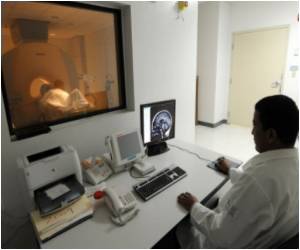A pelvic MRI scan with IV contrast and rectal balloon is highly effective in identifying local recurrence even at low PSA values in prostate cancer patients.

The study showed that about one-third of patients with a biopsy-proven recurrence after suspicious MRI finding had a PSA of less than 1, with several having a PSA as low as 0.3. A scan of the surgical bed is typically performed after a prostatectomy and before salvage radiation therapy treatment in prostate cancer patients with a rising PSA to determine a potential recurrence and location of recurrence.
An MRI is able to differentiate between soft tissues better than a traditional CT scan, so the high rates of cancer recurrence picked up by the MRI were not surprising to researchers. What was surprising was the low PSA levels at which the MRI could determine recurrent disease.
"Being able to identify such patients is beneficial, as it would be predictive of response to salvage radiation therapy," Seungtaek Choi, MD, lead author of the study and an assistant professor of radiation oncology at MD Anderson Cancer Center in Houston, said. "It also may allow a radiation oncologist to treat the area of recurrent cancer to a higher radiation dose with or without hormone ablation therapy to increase the chance of cure."
Source-Eurekalert

![Prostate Specific Antigen [PSA] & Prostate Cancer Diagnosis Prostate Specific Antigen [PSA] & Prostate Cancer Diagnosis](https://images.medindia.net/patientinfo/120_100/prostate-specific-antigen.jpg)












